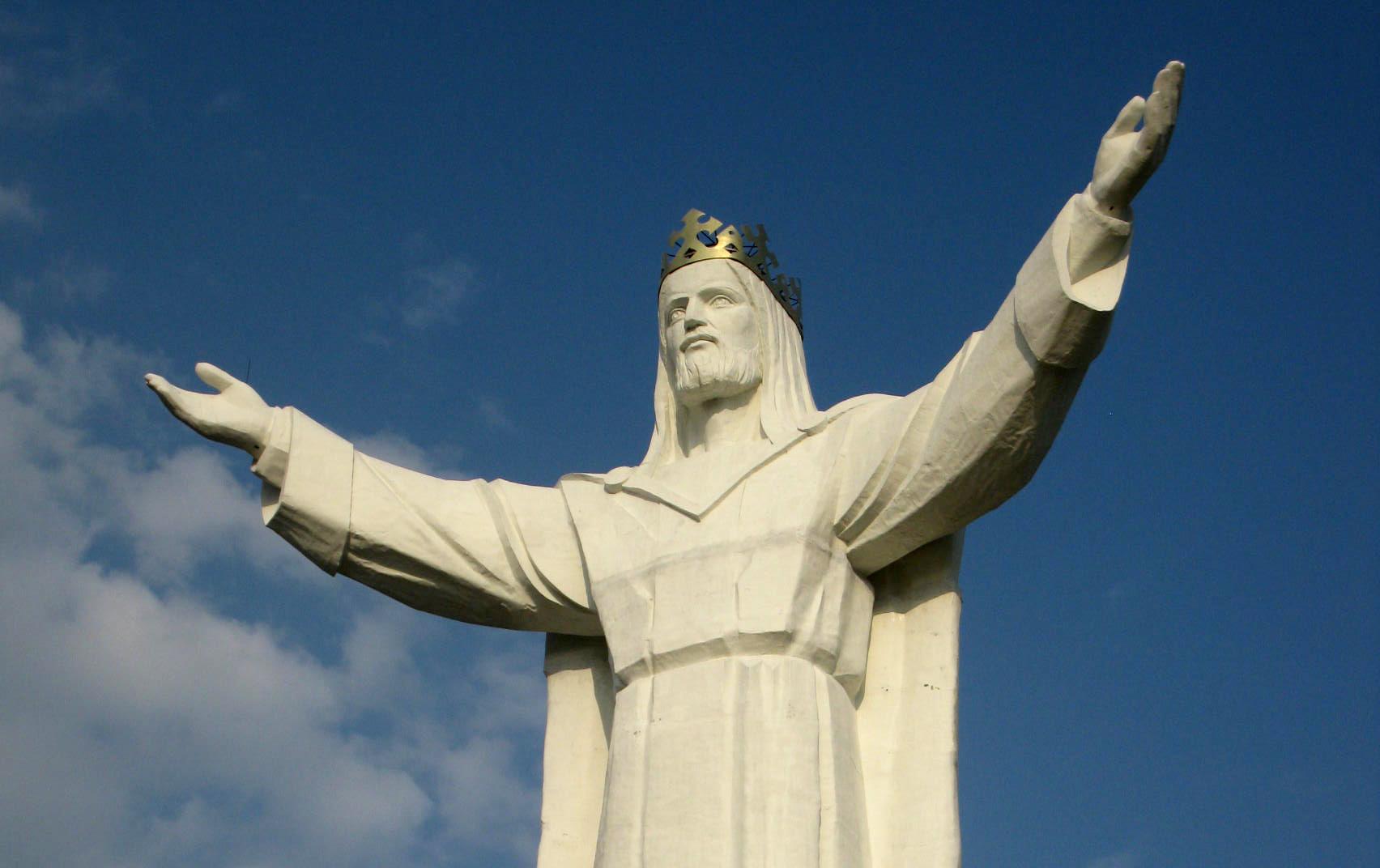In this Friendly Word, Friar Luciano Audisio invites us to contemplate Christ on the cross as a true King: a God who does not rule by dominating, but by giving himself to the extreme. There, where everything seems to be defeated, Jesus reveals his power to love and transform what is broken in our lives.
Contemplating the visible God
Today we celebrate the feast of Christ the King. And the Gospel invites us to ask ourselves what it really means to be king, what power is and how it manifests itself in human life and in our relationship with God.
The passage proclaimed is part of the Passion narrative according to St. Luke, the moment in which Jesus reveals his deepest identity. Here, on the cross, we are shown the overflowing love of God incarnate in him..
The text begins by describing the people who were looking: Καὶ εἱστήκει ὁ λαὸς θεωρῶν, “the people were contemplating.” The verb θεωρέω does not indicate a mere superficial gaze, but a deep contemplation, an attention capable of penetrating what is seen.
In the Hebrew Bible, however, to see is ambivalent: it can be a gesture of openness… or of possession. A visible God is a God who allows himself to be possessed… even to be crucified..
The Fathers of the Church understood it this way: a God seen is a God exposed to death. But here something unprecedented happens:
Christ crucified is the only “object” capable of transforming the “subject” who contemplates him.
Our gaze tends to devour what it sees; in Christ, when we fix our eyes on Him, it is He who transforms uswho unifies and rebuilds our heart.
The scandal of a power that does not defend itself
Alongside the people appear the mocking bosses. They represent that wounded rationality that does not accept that whoever has power chooses not to save himself. Our mind protests:
“If he is the Messiah, let him be saved.”
This is the ultimate human rebellion against God: we find it unacceptable that the Almighty does not defend himself, that he does not exercise his power. But this is the heart of today’s Gospel: What does it mean to be king for God? For us, power means to dominate, to control, to place ourselves above. For God, power means surrendering.
His only throne is the cross; his kingship is love to the extreme.
Sometimes, calling Christ “King of the Universe” may sound ambiguous if we understand it in categories of imposition. But Christ’s kingship does not rule from abovedoes not force, does not dominate.
The only power that exists in God is to love.
The ruined wine that Christ welcomes
On the cross, Jesus welcomes even our “spoiled wine”: the vinegar offered to him, symbol of broken relationships, of deteriorated communion, of a lost feast.
He accepts that vinegar because he has come to to pick up all that is spoiled in our lives to transform it from within.
The two thieves: two ways of relating to God
Then comes the dialogue between the two thieves. One represents our self-salvation: all his life he tried to save himself, and now he demands that God do the same. He is a mirror of our frustration: we cannot save ourselves alone. The other recognizes the divine presence in Jesus and pronounces an extraordinary phrase:
“Don’t you even fear God?”
He understood that in Jesus a God is at work who chooses not to save himself in order to be able to accompany us even in death. And then Jesus responds:
“Today you will be with me in paradise.”
It is not a reward: it is a promise of communion. Jesus turns a broken life into a definitive encounter.
The true power that reigns from the cross
This is the kingship of Christ:
- transform sin into encounter,
- ruins in communion,
- defeat in intimacy with God.
Its power is not to control, but to rescue. It is not to impose, but to heal the dispersed in the human heart. We celebrate Christ the King not because he governs from power, but because he reigns from surrenderHis throne is the cross, his power is love, his crown is mercy. Today our prayer can be simple and profound:
to stand before the Crucified One,
let your gaze touch what is broken,
offer you our ruined wine
and allow Him to turn it into a feast.
For only love that gives itself to the extreme can truly reign.


